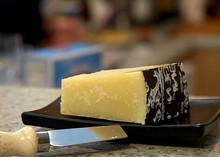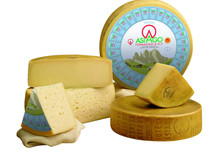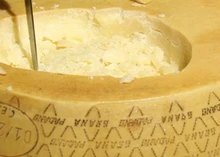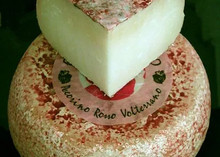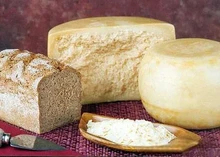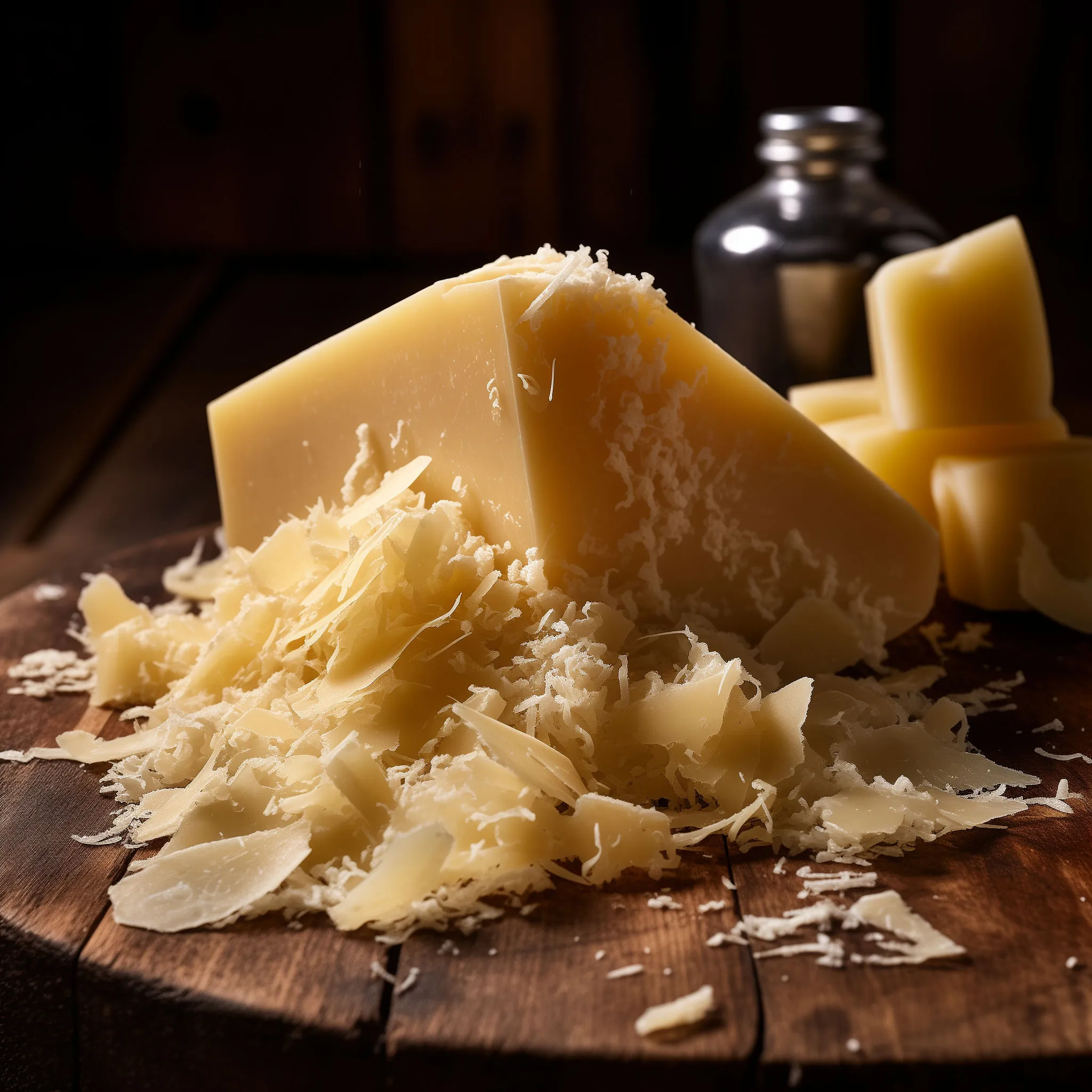
Substitutes for Parmesan
While Parmesan cheese is a popular ingredient in many dishes, known for its distinct nutty flavor and granular texture, there may be times when you don't have this cheese on hand. Fortunately, several substitutes for Parmesan cheese work well as alternatives, offering a similar flavor profile and texture that you can utilize to enhance your recipes.
So, whether you're searching for a vegan option or just looking to switch things up, these substitutes are worth considering.
Is Parmesan Cheese Similar to Pecorino Romano?
Pecorino Romano is an excellent choice if you're looking for a cheese that's a close match to Parmesan but possesses its own unique character. Both cheeses are salty and tangy, but Pecorino Romano boasts a slightly sharper and more intense flavor. Made from sheep's milk, it has a complex and crumbly texture that adds a delightful crunch to your dishes.
One key difference to remember is that Pecorino Romano is far saltier than Parmesan cheese, so when substituting, you may want to adjust the amount used in your recipe accordingly. Additionally, while Pecorino Romano can be grated like Parmesan, it does not melt in quite the same way when heated; the tendency for Parmesan to crisp up is not present in pecorino.
Like Parmesan, Pecorino Romano is an Italian cheese steeped in tradition and in possession of a protected designation of origin status known as DOP for short. Pecorino Romano hails from Sardinia, Lazio, and Tuscany, where sheep farming has a long history, contributing to the cheese's unique flavor profile. The cheese is produced under strict rules and guidance that ensure the authenticity and quality of the cheese at every stage of its creation. This designation guarantees the authenticity and quality of the cheese, reflecting its rich heritage and traditional production methods.
When it comes to pairing these cheeses with wine, it's not just about the cheese but also about the wine. While Parmesan pairs well with red wines like Chianti or Barolo due to its nutty and savory notes, the sharp, salty tang of Pecorino Romano' makes it a great companion for white wines such as Vermentino or Soave.
When it comes to pairing these cheeses with wine, Parmesan is often matched with red wines like Chianti or Barolo due to its nutty and savory notes, while Pecorino Romano's saltiness and sharpness make it a great companion for white wines such as Vermentino or Soave. Consider the wine pairing when deciding between these two cheeses for your culinary creations.
Is Parmesan Cheese Similar to Asiago DOP?
Asiago DOP is another type of cheese often used as a substitute for Parmesan. It hails from the town of Asiago plateau in Italy and contains a mixture of whole and skim cow's milk. Asiago DOP has a pleasantly mild and slightly sweet flavor with a hint of nuttiness, making it comparable to Parmesan cheese in most regards.
Asiago DOP form varies depending on how long it has been aged. Younger cheeses have a fresh taste and are much softer than aged cheeses, which offer a piquant taste and tend towards the crumbly side of the texture spectrum. For a flavor profile closer to Parmesan, opt for the aged variety, as its sharp taste and firmer texture are deeply reminiscent of its more ubiquitous cousin.
Asiago DOP is still produced using a method that has been passed down through the generations. Variations in the aging process play a crucial role in deciding its final taste and texture. The maturation of Asiago DOP can range from a few months to over a year, resulting in a spectrum of flavors and textures to suit any number of culinary needs.
Furthermore, Asiago DOP holds a Protected Designation of Origin (DOP) status in the European Union, ensuring that it is produced following strict guidelines in a specific geographical area. This designation guarantees the authenticity and quality of the cheese, reflecting its rich heritage and traditional production methods.
Is Parmesan Cheese Similar to Grana Padano?
If you're looking for a milder-flavored substitute that still delivers a rich taste and texture, Grana Padano is a great option. A cow's milk with a granular texture, Grana Padano has a softer and less complex flavor than Parmesan.
Grana Padano is also aged for a shorter period than Parmesan -- usually around nine to sixteen months -- resulting in a cheese that is nutty, fruity, and slightly sweet. It is also less salty, which may be preferable for those on a low-sodium diet. This cheese is versatile and finds use in a variety of recipes, from pasta dishes to salads.
Is Parmesan Cheese Similar to Pecorino Toscanello?
For a substitute that brings a bit of a twist to your recipes, consider Pecorino Toscanello. This cheese, made from sheep's milk, has a unique flavor that is both buttery and slightly salty but adds notes of sharpness absent in Parmesan. While it may not have the exact taste of Parmesan cheese, it adds its own distinct character to dishes.
Pecorino Toscanello is semi-hard and deliciously crumbly, making it ideal for grating or shaving over pasta, salads, and other savory dishes. Its flavor profile pairs well with a variety of ingredients, making it a versatile substitute for Parmesan in many recipes.
Is Parmesan Cheese Similar to Reggianito?
Reggianito is an Argentine cheese that shares many similarities with Parmesan cheese due to it having been developed by Italian immigrants who missed the cheese of their homeland. A great example of how a change in climate can make for a departure in flavor, Reggianito is a cow's milk cheese with a nutty flavor and a granular texture. It is usually aged for a shorter period than Parmesan – just five to six months -- resulting in a milder and less complex taste.
While it may not have the same depth of flavor, Reggianito can still be used as a substitute in various dishes. It grates well and can provide a similar texture and fresh accents to recipes where Parmesan cheese is called for.
Is Parmesan Cheese Similar to Asiago?
Asiago is a versatile cheese that can serve as a substitute for Parmesan. It is a cow's milk cheese originating from the Asiago plateau in Italy. While it may not replicate the exact flavor of Parmesan, Asiago offers its own unique taste and texture.
There are different types of Asiago cheese, including fresh, aged, and extra-aged varieties. Fresh Asiago has a mild flavor with a buttery and slightly sweet taste. As it ages, it develops a stronger and sharper flavor, resembling the complexity of Parmesan. The texture of aged Asiago becomes firmer and more crumbly, making it suitable for grating and sprinkling over dishes.
When using Asiago as a substitute for Parmesan, consider the specific variety and age of the cheese to achieve the desired flavor and texture in your recipe.
Conclusion
Parmesan cheese has a unique taste and texture that can enhance a wide range of dishes. However, if you're in need of a substitute or simply want to try something different, there are several options available. From the saltiness of Pecorino Romano to the milder flavor of Grana Padano, each cheese offers its own distinct characteristics.
Whether you choose to experiment with Asiago DOP or explore the nutty flavors of Pecorino Toscanello, these substitutes can add a delightful touch to your favorite recipes. So next time you find yourself without Parmesan cheese, don't hesitate to discover the world of alternatives that await your culinary exploration.

